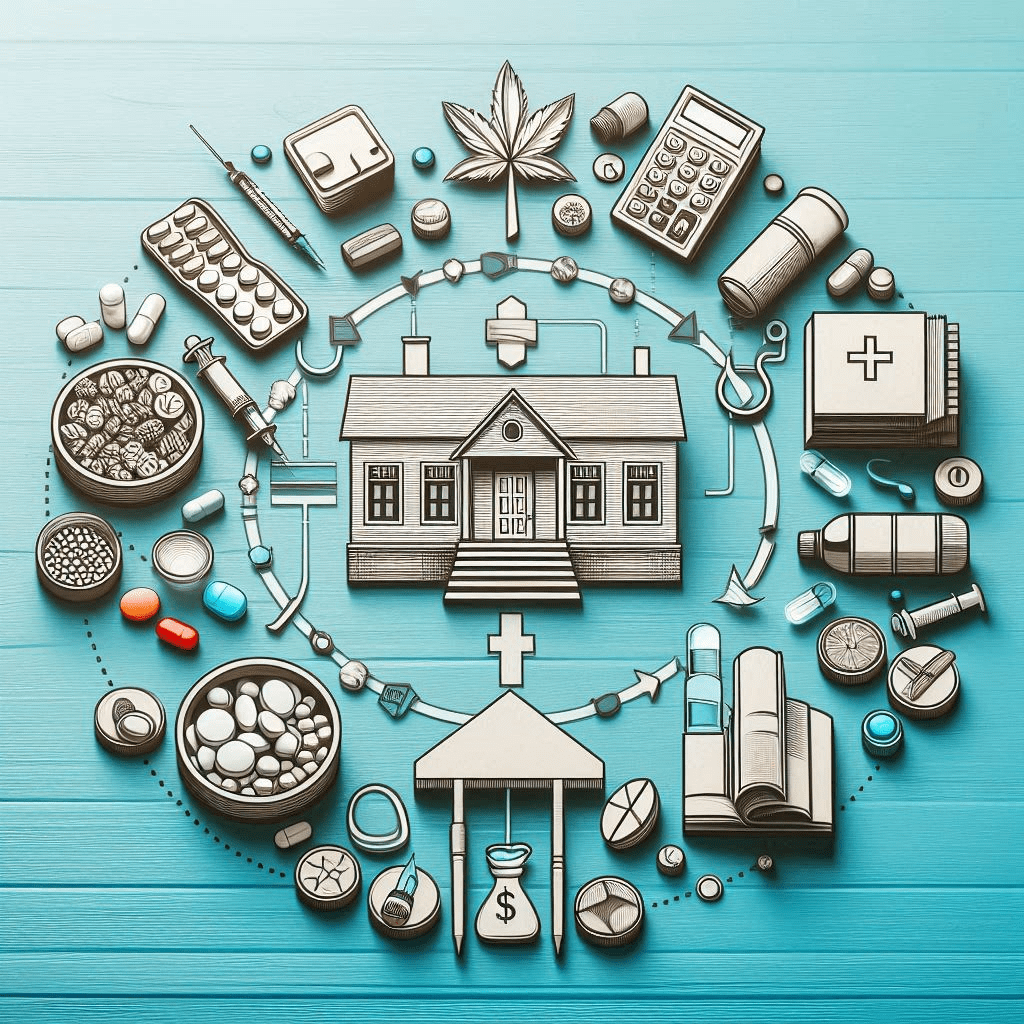
Addiction can feel like an insurmountable mountain, but the good news is that there are various paths to recovery. Each person’s journey is unique, and finding the right addiction treatment program is crucial to success. Here’s a guide to understanding the different types of addiction treatment programs available, presented in a natural and conversational tone for our readers in the USA.
Inpatient Treatment Programs
When it comes to tackling addiction head-on, inpatient treatment programs are often the gold standard. These programs require you to live at the treatment facility for the duration of the program, which can range from 30 days to several months. The immersive environment offers 24/7 support, structured routines, and a community of peers who understand what you’re going through.
Why choose inpatient treatment?
- Intensive Support: Constant access to medical and psychological care.
- Structure: Daily schedules that help build new, healthy habits.
- Community: Shared experiences with others on the same journey.
Outpatient Treatment Programs
If you need flexibility to maintain your daily responsibilities while receiving treatment, outpatient programs might be the right fit. These programs allow you to live at home and attend therapy sessions at the treatment center. The frequency and length of these sessions can vary based on your individual needs.
Types of outpatient programs:
- Standard Outpatient Programs (OP): Typically involve weekly therapy sessions.
- Intensive Outpatient Programs (IOP): More frequent sessions, often multiple times a week.
- Partial Hospitalization Programs (PHP): Highly structured, usually involving full-day sessions.
Why choose outpatient treatment?
- Flexibility: Continue working, studying, or caring for family while receiving treatment.
- Support System: Stay connected with your support network at home.
- Cost-Effective: Generally less expensive than inpatient programs.
Long-Term Residential Treatment
For those with severe or long-standing addictions, long-term residential treatment offers an extended stay, often lasting six months to a year. These programs provide a stable environment where you can focus on recovery without the distractions and temptations of everyday life.
Why choose long-term residential treatment?
- Comprehensive Care: Extensive time to address deep-rooted issues.
- Skill-Building: Develop life skills and coping mechanisms over a longer period.
- Sober Environment: Prolonged time away from triggers and negative influences.
Medication-Assisted Treatment (MAT)
Medication-Assisted Treatment (MAT) combines the use of FDA-approved medications with counseling and behavioral therapies. This approach is particularly effective for opioid and alcohol addictions, helping to reduce cravings and withdrawal symptoms.
Common medications used in MAT:
- Methadone: Reduces cravings and withdrawal symptoms for opioids.
- Buprenorphine: Another option for opioid addiction, often combined with naloxone.
- Naltrexone: Blocks the effects of opioids and alcohol.
- Acamprosate: Helps maintain abstinence in alcohol-dependent individuals.
Why choose MAT?
- Symptom Management: Alleviate severe withdrawal symptoms.
- Stabilization: Helps maintain focus on recovery by reducing cravings.
- Comprehensive Support: Combines medication with therapy for holistic care.
Holistic and Alternative Treatment Programs
Holistic and alternative treatments aim to treat the whole person, not just the addiction. These programs often include a variety of non-traditional therapies designed to complement conventional treatment methods.
Common holistic treatments:
- Yoga and Meditation: Promote physical and mental well-being.
- Art and Music Therapy: Foster self-expression and emotional healing.
- Nutritional Counseling: Address dietary needs to support recovery.
- Acupuncture and Massage Therapy: Reduce stress and improve overall health.
Why choose holistic treatment?
- Mind-Body Connection: Emphasize the importance of overall wellness.
- Individualized Care: Tailored to meet unique personal needs and preferences.
- Complementary: Enhances traditional treatment methods for comprehensive care.
Conclusion
Choosing the right addiction treatment program is a deeply personal decision. Whether you opt for the structure of inpatient treatment, the flexibility of outpatient care, the long-term support of residential programs, the comprehensive approach of MAT, or the holistic benefits of alternative therapies, the key is to find a program that aligns with your needs and goals. Recovery is a journey, and with the right support, it’s a journey you don’t have to take alone. If you or a loved one is struggling with addiction, reach out to a treatment center today and take the first step toward a healthier, happier future.
Leave a Reply